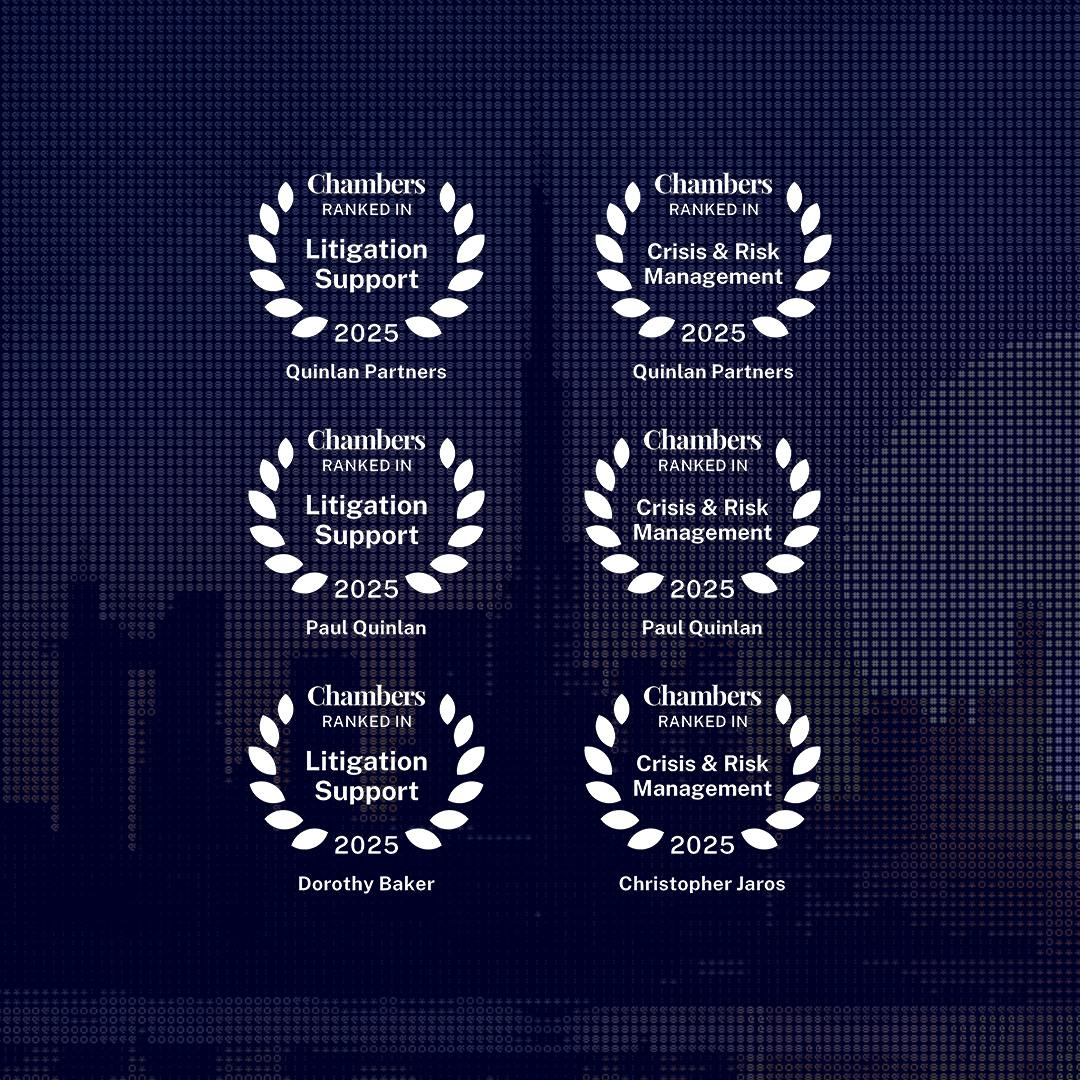Insights
Behind the Investigations:
A Q&A with Xander Landen

Corporate intelligence and investigations are about much more than finding red flags or digging up dirt. We spoke with Xander Landen, a senior associate at Quinlan Partners who brings a unique perspective from his background as a political and investigative journalist.
Q&A
Q: What drew you to investigative work, and how does your background shape your approach?
I used to work as a journalist, which is where I learned how to conduct in-depth research, interviews, and connect the dots to paint a larger picture. The curiosity and persistence that I needed as a reporter translate seamlessly into my work at Quinlan. My job as an investigator offers a lot of what I liked most about journalism—the opportunity to pull on investigative threads, throw myself into complex topics, and dig deep.
Q: What specialized skill or perspective do you bring to the team that complements your colleagues' expertise?
Our work requires investigators to jump into completely new industries, technologies, or markets with each project. One day you might be interviewing someone trying to better understand highly technical software, and the next you're analyzing the competitive dynamics of a manufacturing company. My journalism background, particularly my experience as a statehouse reporter, trained me on how to quickly parse dense and complicated information while identifying what truly matters. This ability to see the forest through the trees and key in on the important details can be critical when you're navigating jargon-heavy conversations with industry experts.
Q: How do you approach building trust with reluctant sources or witnesses?
I think demonstrating an earnest curiosity is key to encouraging people to talk with you. When you reach out to people, you're inviting them to join in a quest for truth, offering an opportunity to share their knowledge and help solve important challenges. When you show genuine interest in a person's experience or expertise about a topic they're familiar with, and you're not pressuring them, people naturally become more willing to share their thoughts and experiences. I also make it clear that we play by the rules, which puts people at ease. We’re not looking for any confidential information or anything people aren’t comfortable or able to share.
Q: What misconception about investigative work would you like to correct?
A lot of people think what we do is cloak and dagger surveillance or the classic PI stereotype of skulking around and digging up personal dirt. While we do in-depth background checks to identify potential red flags and reputational issues, a significant portion of our work is almost more consultative. On the due diligence side, it’s often about understanding market dynamics, or a company's leadership, culture, ethics, and potential. For instance, we're often helping clients understand and evaluate the qualities of corporate executives—whether they are effective leaders, create positive work cultures or have potential to scale a business.
Q: What's an unexpected way your personal interests or hobbies have helped you solve a case?
I did some acting in high school and a bit in college, and that experience has been surprisingly helpful in my professional career. Interviewing requires you to be present in the moment—paying attention, picking up on cues, and going with the flow, similar to how an actor must be on stage. There's a rhythm to conducting an interview that feels comparable to the give-and-take of a dramatic scene. That background has helped me develop a presence and comfort level when speaking with people that makes the conversation flow more naturally.
Q: What advice would you give to someone preparing for an investigative interview?
I think that a lot of people might assume that already having subject matter expertise is critical to conducting an in-depth interview on a complicated industry or subject matter. However, I find that being a generalist and taking on new subjects with a fresh perspective presents a big advantage. When you're trying to unpack a new topic, you have to encourage sources to explain things in understandable terms that will ultimately be clearer for the client as well. Interviewing is a bit like improv—while advance research and preparation is essential, success comes from being present, picking up on what's important, and focusing on what matters in real time. The ability to go with the flow and learn as you're going is often just as valuable as the advance work. So the advice I would give is to get ready to go along for the ride.


